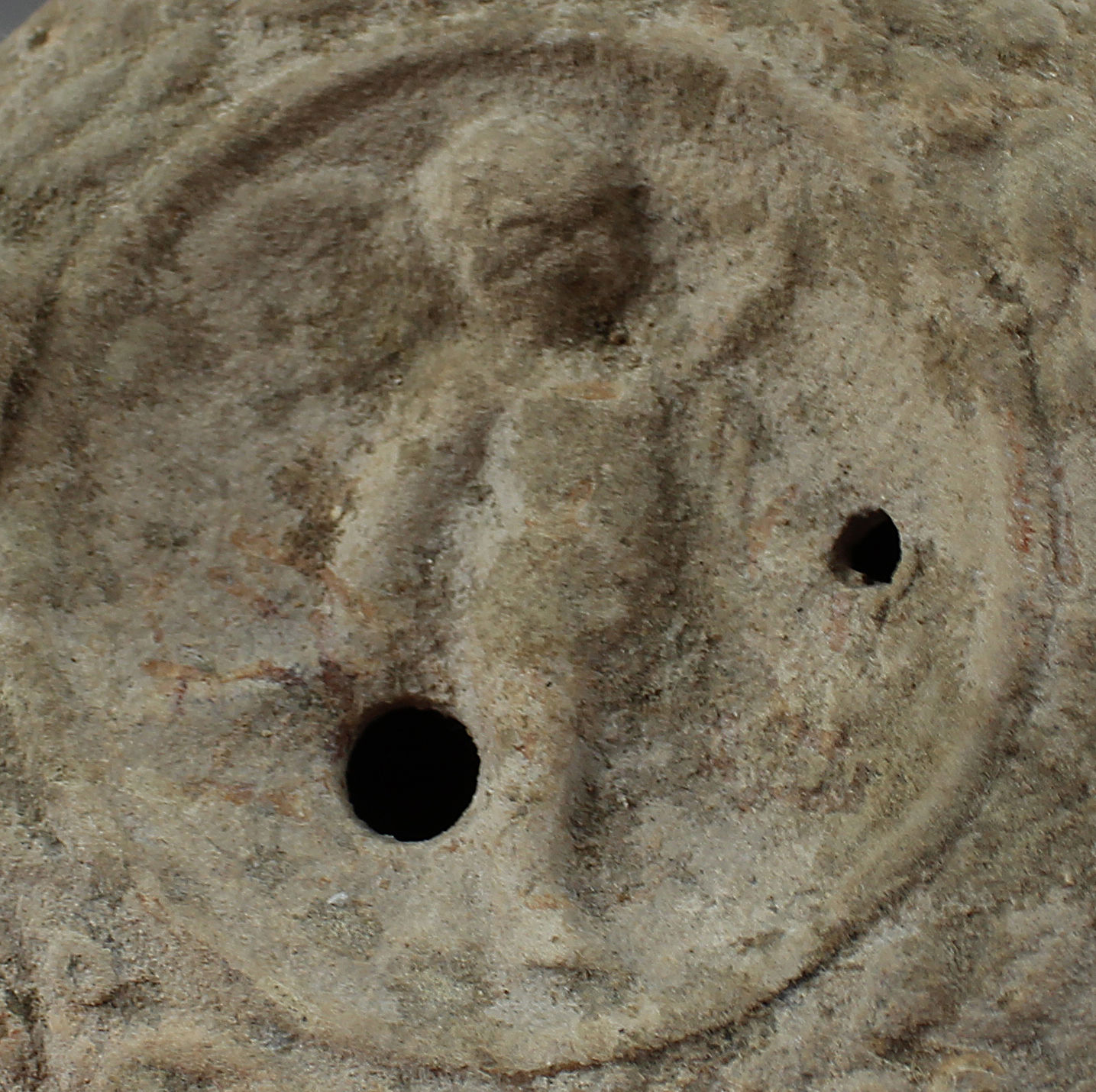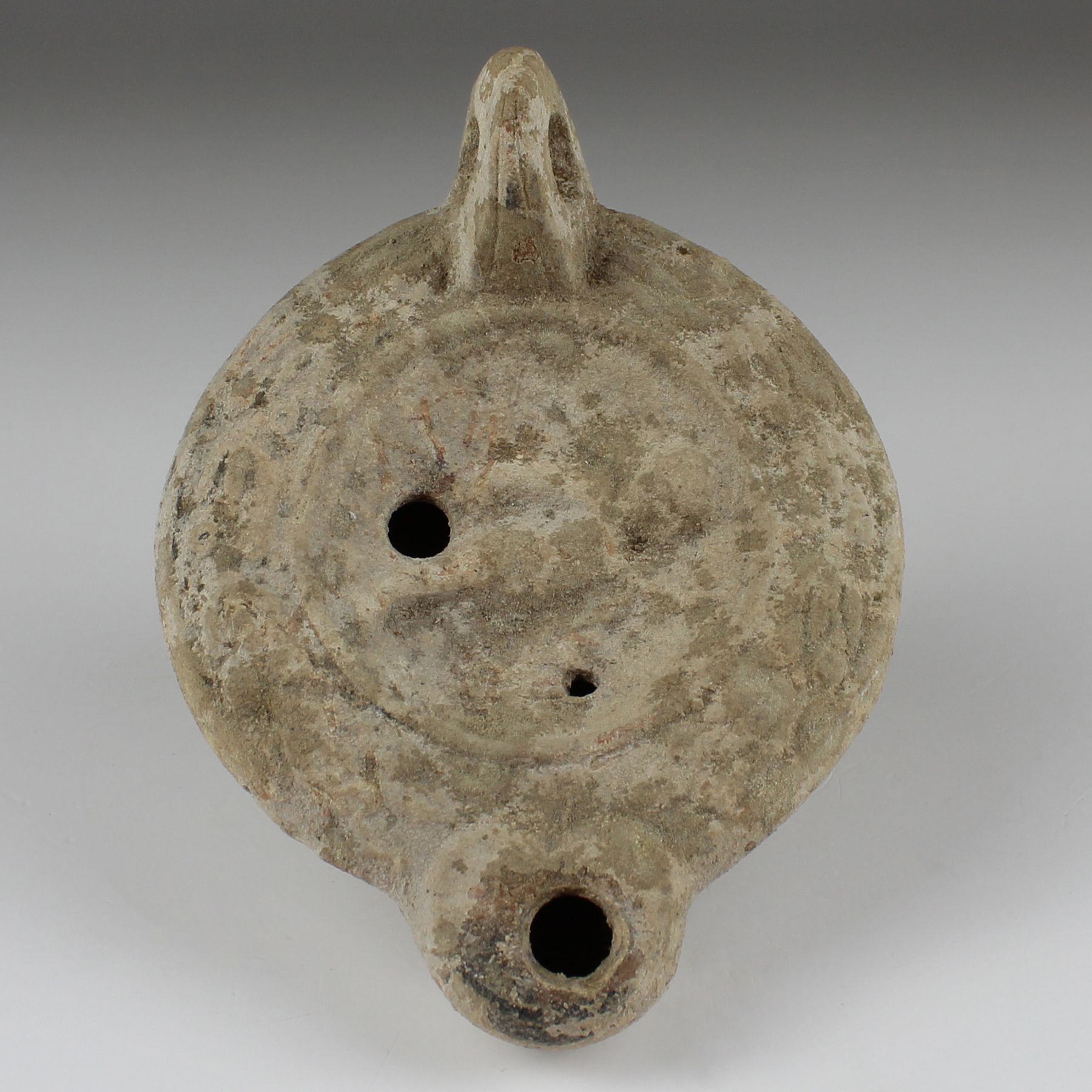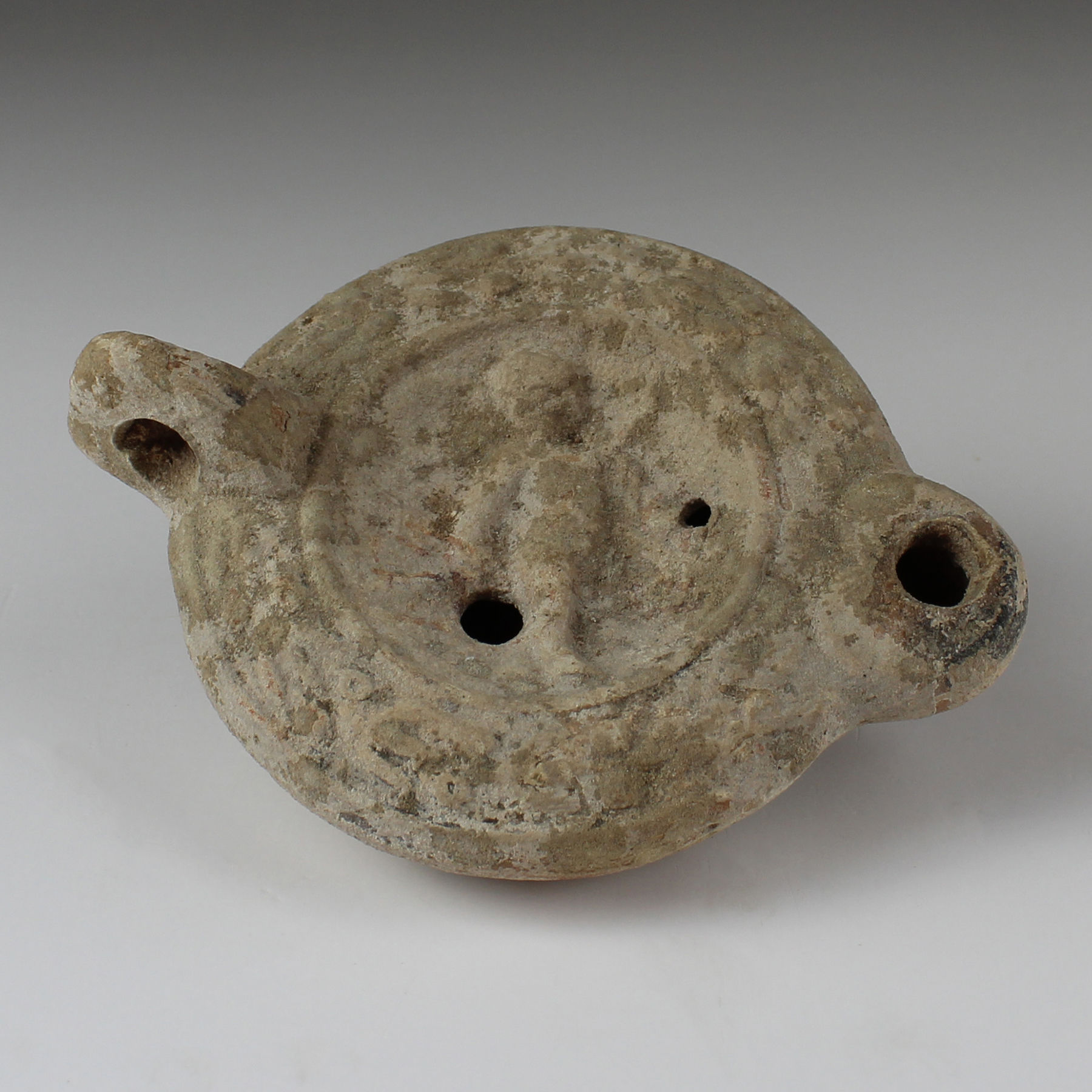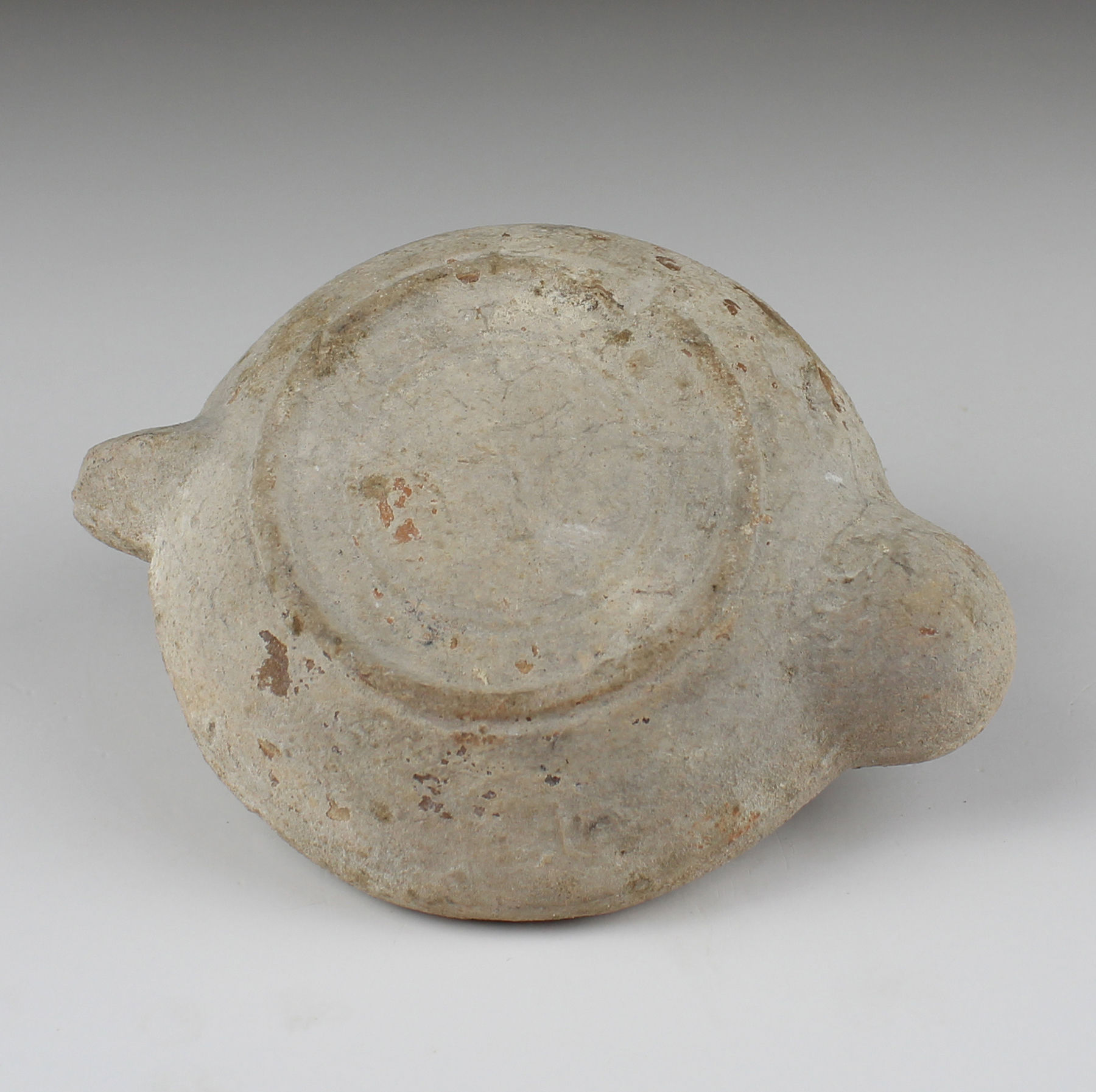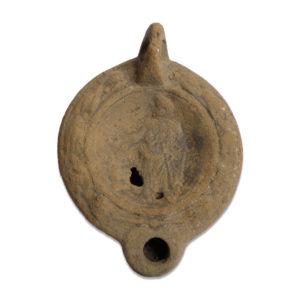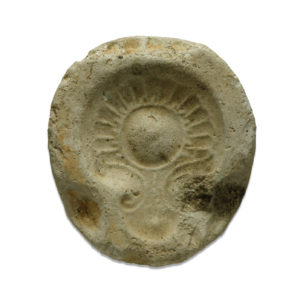Description
| ITEM | Oil lamp with winged genie, Type Bussière D X 4 |
| MATERIAL | Terracotta |
| CULTURE | Roman |
| PERIOD | 175 – 250 Century A.D |
| DIMENSIONS | 45 mm x 78 mm x 105 mm |
| CONDITION | Good condition |
| PROVENANCE | Ex Marius-Victor-Ernest Dumas private collection (North Africa and France), acquired in Tunisia between 1890 – 1920. M. Dumas was Controleur Civile (French colonial administrator) of the city of Sousse in Tunisia prior to World War I. This collection of Roman and North African antiquities has remained in the family for the past 100 years in the Haute-Savoie region of France. |
In Roman religion, the genius is the individual instance of a general divine nature that is present in every individual person, place, or thing. Much like a guardian angel, the genius would follow each man from the hour of his birth until the day he died. For women, it was the Juno spirit that would accompany each of them.
Each individual place had a genius (genius loci) and so did powerful objects, such as volcanoes. The concept extended to some specifics: the genius of the theatre, of vineyards, and of festivals, which made performances successful, grapes grow, and celebrations succeed, respectively. It was extremely important in the Roman mind to propitiate the appropriate genii for the major undertakings and events of their lives.
Although the term genius might apply to any divinity whatsoever, most of the higher-level and state genii had their own well-established names. Genius applied most often to individual places or people not generally known; that is, to the smallest units of society and settlements, families and their homes. Houses, doors, gates, streets, districts, tribes, each one had its own genius. The supreme hierarchy of the Roman gods, like that of the Greeks, was modelled after a human family. It featured a father, Jupiter, who was also the supreme divine unity, and a mother, Juno, queen of the gods. These supreme unities were subdivided into genii for each individual family; hence, the genius of each female, representing the female reproductive power, was a Juno. The male power was a Jupiter.


